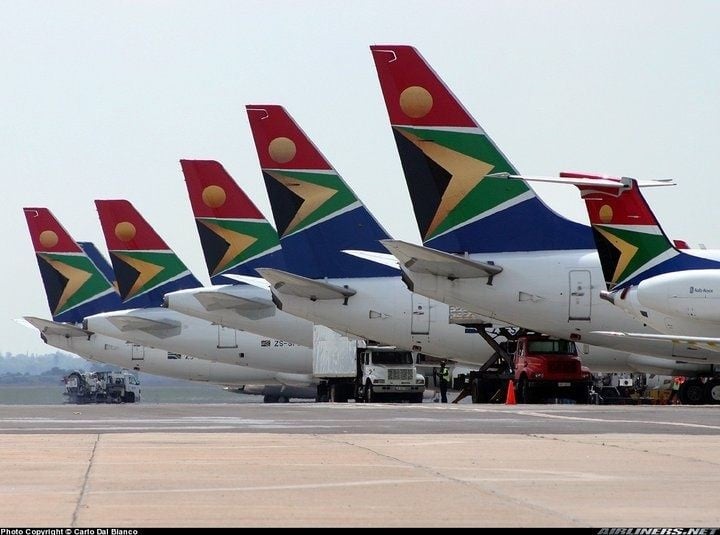
It also services the tourism industry and creates jobs beyond the aviation sector, writes Hlengani Mathebula.
The aviation industry plays a critical role in any society.
It makes it possible for people and business to connect across continents and cultures.
In addition to being an industry and a major contributor to economic activity in its own right, aviation also facilitates the activity of other economic sectors.
One of the industries most dependent on the aviation sector is tourism.
According to studies, more than 1.4 billion people cross borders as tourists, half of whom do so by air.
Based on 2016 data, the aviation industry supported some 37 million tourism jobs globally.
The aviation industry is also a big enabler of global trade and e-commerce, making it crucial for the greater linkages of the global economy.
In all of these roles, aviation is therefore an important industry in Africa, and indeed in South Africa.
It is for these reasons that the problems that SAA faces need to be addressed in a manner that takes all of these factors into account.
Most importantly, government’s approach to finding a lasting solution for SAA must be informed by evidence.
This is important given the scarce financial resources that government currently faces.
The effort, therefore, to rescue SAA, which is currently under way, requires a clearer policy on the role of the airline in the South African, if not African, aviation industry.
The aviation industry is, and can be, a major contributor to South Africa’s economic prosperity.
Indeed, the entire African continent’s aviation sector has so much untapped potential.
Government placed SAA in business rescue late last year in a bid to stave off the possible liquidation of the state-owned airline by some of its creditors.
The business rescue practitioners are expected to table proposals shortly on how best the airline can be nursed back to life, if it can.
The business rescue practitioners said last month that, based on the availability of further funding, which the National Treasury had committed to provide, as well as the support of other stakeholders – including government, employees, trade unions and trade suppliers – they were of the opinion that there was a reasonable prospect that the business rescue of the airline would be successful.
That may be so, but there is no guarantee that SAA will do well after the business rescue exercise.
The biggest problem is that SAA was placed under business rescue in a policy vacuum.
The key question government should answer, rather urgently given the circumstances, is why it should rescue SAA.
Key in answering this question is an understanding of what role SAA plays in the country’s aviation industry and the broader South African economy.
Secondly, can the role that has hitherto been played by SAA be played by another airline company not necessarily owned by government?
In a fiscal environment in which resources are as tight as Finance Minister Tito Mboweni has constantly warned us, it will be a waste of very scarce public resources for government to continually pump money into propping up SAA when what the airline does can easily be done by another airline, or airlines.
The resources that will go into propping up SAA could be used for other worthy social programmes from which the poor will benefit the most.
So, government needs to review carefully the role SAA plays in the economy.
The purpose of such a study would be to determine whether the role SAA plays cannot be substituted with an airline or airline companies that are not owned by government.
Such an approach to the SAA problem would also come in handy should the business rescue process not work out.
Given the myriad other socioeconomic challenges South Africa is facing, owning and running an airline company for sentimental reasons is a luxury this country can ill afford.
More so if the role that airline company is expected to play can be taken by companies other than those owned by government.
This wouldn’t matter much if this government entity was run efficiently and wasn’t a drain on the fiscus.
The aviation industry, as last year’s edition of the Aviation Benefits Report published by the Industry High Level Group points out, comes with a number of benefits.
It is a major contributor to globalisation, which is the increasing linkages between countries. It does this by enabling the movements of goods and people across borders, in particular over long distances.
Aviation does contribute in its own right to economic activity and in the process contributes to job creation.
Tourism is one industry that relies heavily on aviation.
The tourism sector has been identified in various government policies, including the National Development Plan, as one of the sectors that can help absorb labour, especially the young people who have very limited skills.
According to the Treasury’s draft economic policy document published last year: “The concentration of unemployed among young people and individuals without tertiary education is unsustainable as it contributes to the intergenerational persistence of inequality.
“Agriculture and services present significant opportunities for lowering unemployment ... Services sectors have been by far the fastest growing in the domestic economy, averaging more than 6% per annum since 2009. And services sectors such as construction, retail and tourism offer great scope to support inclusive growth by absorbing the youngsters. We need deliberate policy measures and interventions that can bias economic growth towards employment-intensive sectors.”
Therefore how government addresses the SAA problem has major implications for the South African economy and government finances.
Mathebula is the managing executive of Absa Private Bank, nonexecutive director of BMW SA Group and chairperson of the Black Business Executive Circle. Follow him on twitter @hlengane
 | ||||||||||||||||||||||||||
Get in touchCity Press | ||||||||||||||||||||||||||
| ||||||||||||||||||||||||||
| Rise above the clutter | Choose your news | City Press in your inbox | ||||||||||||||||||||||||||
| City Press is an agenda-setting South African news brand that publishes across platforms. Its flagship print edition is distributed on a Sunday. |




 Publications
Publications
 Partners
Partners








